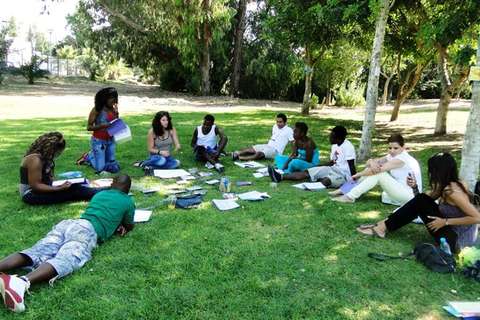


� Powered by SiteSpirit
Separated children are under 18 years of age who are outside their country of origin and separated from both parents, or their previous legal/customary primary caregiver. Some children are totally alone while others, who are also the concern of the Separated Children in Europe Programme, may be living with extended family members.
All such children are separated children and entitled to international protection under a broad range of international and regional instruments. Separated children may be seeking asylum because of fear of persecution or the lack of protection due to human rights violations, armed conflict or disturbances in their own country. They may be the victims of trafficking for sexual or other exploitation, or they may have travelled to Europe to escape conditions of serious deprivation.

SCEP recognises that separated children suffer physically, socially and psychologically as a result of being without the care and protection of their parents or previous primary care giver(s). All separated children are entitled to protection under a broad range of international and regional instruments, most notably the 1989 Convention of the Rights of the Child, further elaborated in General Comment No.14 and General Comments No. 6 the 1951 UN Refugee Convention and the Hague Conventions for the Protection of Children. However, these instruments have not been sufficiently integrated into national legislation and practice.
The treatment and the rights of separated children in Europe are a matter of concern for the SCEP Programme. There is still a widespread denial of their rights as set out in the Convention on the Rights of the Child.
��Many separated children are detained, some are returned to their country of origin without due consideration of whether this is a durable solution in the best interest of the child.
��Procedures for assessing age are not child centered and no methods provide scientific certainty, service provisions are often inadequate and substandard to that offered to citizen children.
��Asylum determination procedures are most often not child focused and in effect separated children are subjected to adult procedures and are often transferred to other EU states under the provisions of the Dublin II regulation.
��Some children, particularly those who are forced to enter Europe illegally or who are victims of trafficking, are treated as criminals and often the best interests of children are usually to the requirements of immigration control.
��Separated children are rarely consulted and their voice is seldom heard.
Separated Children in Europe Programme (SCEP) - coordinated by Defence for Children The Netherlands - PO BOX 11103 - 2301 EC - Leiden - 0031 (0)71 516 09 80 - [email protected]